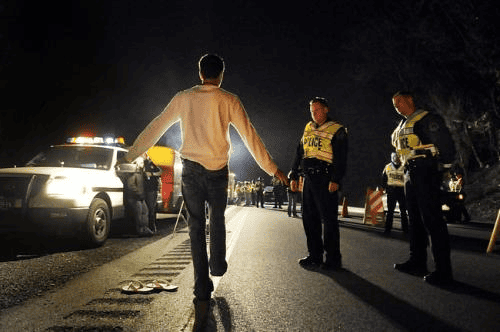-
Location: New Jersey DWI Lawyer 609 Main St. Toms River, NJ - 08753
-
Phone:
201-214-4444
732-282-1394 (1DWI)
Throughout the roads, highways and byways of New Jersey, law enforcement officers employ field sobriety tests (FSTs) to investigate driving while intoxicated (DWI) cases.
In this article, there is discussion about the various FSTs, their legality, and the challenges in defending against DWI charges. Additionally, we’ll explore the importance of seeking the counsel of the Law Offices of Bartholomew Baffuto to navigate the complexities of the legal system effectively.
Standardized Field Sobriety Tests in New Jersey
When you encounter the flashing lights of a police car behind you, you may wonder if you’ve committed a traffic violation. Police officers use traffic stops as a reason for “seizure” under the Fourth Amendment, and they need an objective reasonable suspicion to believe a traffic offense has occurred to initiate a stop. However, the investigation can broaden beyond the initial suspicion if circumstances lead to other suspicions unrelated to the traffic offense.
FSTs play a significant role in this investigative process. The National Highway Traffic Safety Administration (NHTSA) has developed a standardized set of FSTs used in most states, including New Jersey. These tests include:
- One-Leg Stand: In this test, the suspect is asked to raise one foot about six inches off the ground and hold it there for a designated time.
- Walk and Turn: Here, the suspect is asked to walk a straight line, placing their heel to their toe with each step, take nine steps, turn 180 degrees, and repeat the process until returning to the starting point.
- Horizontal Gaze Nystagmus: The officer holds an object at a constant distance from the suspect’s face, moving it from side to side. The suspect must follow the object with their eyes, without moving their head. At the same time, the officer observes for involuntary eye movement, known as nystagmus, which is believed to be associated with intoxication.
If you are unsure if the FSTs apply, seeking the counsel of an experienced NJ DUI lawyer will protect your constitutional rights. Current case law holds FSTs as unproven.
The Legality of Field Sobriety Tests
The constitutionality of FSTs under the Fourth Amendment has been a subject of past legal scrutiny. A 2011 decision by the New Jersey Appellate Division addressed this concern and cited relevant U.S. Supreme Court case law. Current FSTs reliability is in question in State v. Olenowski, 247 N.J. 242.
A traffic stop is considered “reasonable” if police have objective cause to believe a traffic violation occurred. If follows then, that police can “broaden the inquiry” and investigate other suspicions unrelated to the initial traffic offense.
Challenges in Defending Against DWI Charges
If you face DWI charges based in part on alleged failed FSTs, it is crucial to mount a robust defense. Challenging the validity and admissibility in evidence of the tests can be a significant part of this strategy. Even, for the sake of argument, if SFTs should survive the current court challenge, there would remain the issue of whether the police correctly administered and scored the tests.
Achieving a “perfect” performance on FSTs is impossible, making it unlikely for such a performance to help you avoid arrest. Therefore, it becomes imperative to question the accuracy and reliability of these tests in your defense.
New Jersey police employ standardized field sobriety tests to investigate and establish probable cause in DWI cases. In the face of DWI charges, seeking legal counsel from the Law Offices of Bartholomew Baffuto will obtain zealous and effective protection of your rights and a thorough understanding of your options. They can guide you through the complexities of FSTs, DWI laws, and the entire legal process.


